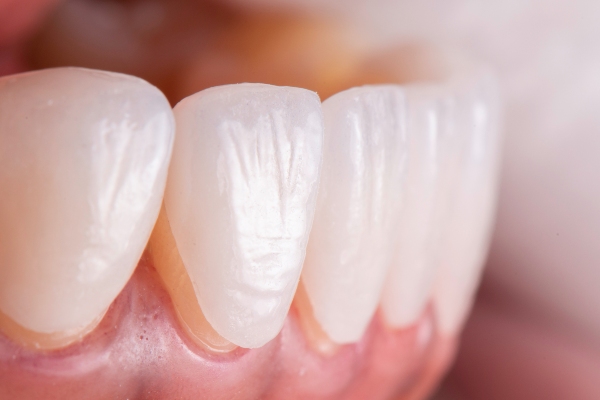4 Signs of Sleep Apnea and What Your Dentist Can Do

Getting a good night’s sleep is important for restoring the body’s function, but for people who have sleep apnea, this may not be possible. In this condition, you might stop breathing many times throughout the night — up to 30 times per hour. Snoring is one of the most obvious signs of sleep apnea, but there are other symptoms as well. If you are experiencing any of these symptoms, then it is important to seek treatment as soon as possible.
Signs of sleep apnea
One sign of sleep apnea is that a patient is a restless sleeper. People who have sleep apnea will often toss and turn during the night. People who find themselves thrashing, waking up under a pile of blankets or jerking about might have sleep apnea. Sleep apnea causes breathing to become disrupted, so individuals will be more likely to struggle while sleeping.
Another sign of sleep apnea is always being tired. Because sleep apnea causes individuals to wake up many times throughout the night, this can cause the quality of the sleep to deteriorate. People who have sleep apnea might fall asleep at different times during the day, such as when watching television. Because of this lack of sleep, people may also get sick more often. The immune system suffers when people do not get enough sleep.
Snoring is one of the most common signs of sleep apnea. When the upper airway is obstructed, it will vibrate when an individual takes a breath. While these two things often go together, snoring is not always a sign of sleep apnea. However, the louder that someone snores, the more likely that person is to have sleep apnea. If a partner notices that the snoring seems to stop and start, then it is very likely that the individual has sleep apnea. The pauses in breathing can happen up to hundreds of times in one night.
Dental problems such as worn teeth are often another sign of sleep apnea. Patients who have sleep apnea often grind the teeth during the night. This can cause the teeth to wear down. It can also cause increased cavities for patients.
Treatment for sleep apnea from a dentist
For individuals who have mild to moderate sleep apnea, treatment with an oral appliance may be an option. A dentist can fit a patient for this appliance. It works by preventing the lower jaw or tongue from falling back over the airway during sleep. This appliance can be used either by itself or with a continuous positive airway pressure (CPAP) machine.
Visit your dentist today
Sleep apnea is a serious condition that should not be ignored. Patients who have sleep apnea should speak with a dentist about getting the right treatment for this condition. Your dentist can create a customized appliance that can prevent your tongue or jaw from covering your airway. Contact a dentist today to begin getting treatment for your sleep apnea.
Request an appointment here: https://www.smilebeautification.com or call Precision Smiles. at (201) 204-1355 for an appointment in our Hackensack office.
Check out what others are saying about our services on Yelp: Read our Yelp reviews.
Recent Posts
Advancements in orthodontics make it possible to achieve a straighter smile without the noticeable appearance of traditional metal braces. Clear braces provide an option that blends in with natural teeth, offering a more subtle approach to orthodontic treatment. Their translucent or tooth-colored materials allow individuals to correct alignment issues while maintaining a simple aesthetic.Clear braces…
Dental veneers and dental crowns are restorations that can change the appearance of your teeth. Though they are different procedures, people often confuse the two. This article will review the key differences between crowns and veneers to help you better understand which procedure is right for you.A dental veneer is a thin covering for a…
Those seeking to perfect their smiles often turn to dental veneers. This treatment is well known for helping to create bright and dazzling smiles free from imperfections, making it one of the most sought-after cosmetic procedures. In addition, veneers are aesthetically pleasing and versatile in addressing the widest range of cosmetic issues.However, it is important…
Your smile is one of the essential parts of your appearance, so you may want to get teeth whitening. It is a great way to add something to your appearance, and it can make your face look better. It makes you appear happier, and it can help others feel better too when meeting you. And…


